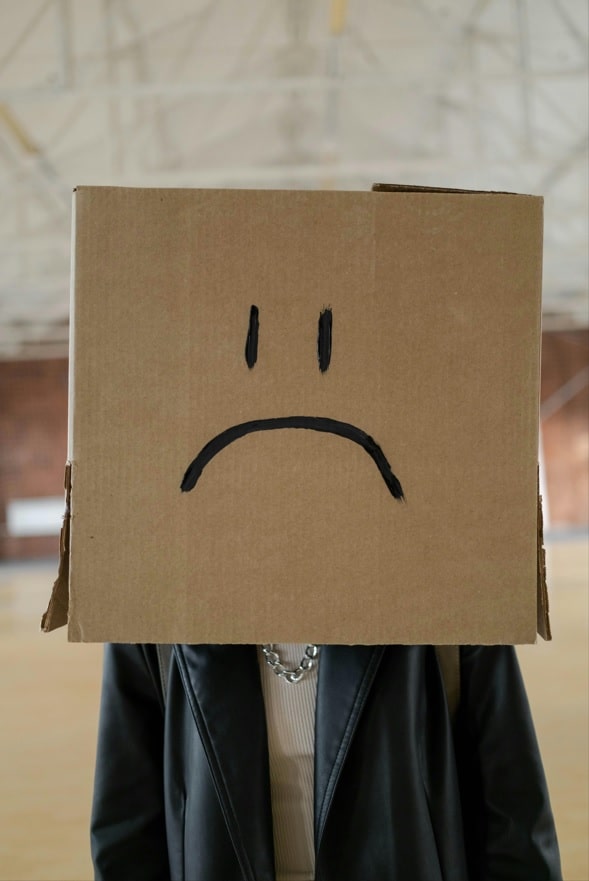5 Ways to Deal With Your NJ Relocation Depression

Table of Contents
Even if you’re excited for your upcoming relocation to New Jersey, a move can leave you feeling dispirited, especially if you’re moving to a completely new city. After all, you’ll be leaving behind your old friends and, if you’re moving away from home, your family members. So if you’re feeling depressed because of all these changes, you’re not alone.
Almost every major life event, no matter how positive, can lead to a period of upheaval. What matters are the steps you take to ensure these negative emotions don’t affect your overall mental health and wellness. That’s why we have compiled a list of tips and tricks to keep you on track and feeling good.
Table of Contents
What is Relocation Depression
While it’s not a formal diagnosis in the DSM-5 manual, relocation depression, also known as adjustment disorder, is very real, and its effects vary greatly between people. For many, the disruption to their routine, as well as the anxiety associated with a move, can lead to temporary sadness. Depending on how far you’re moving, it can mean losing your support network, feelings of isolation, and dealing with culture shock. Other causes of relocation depression include:
- Physical and mental exhaustion from the move
- Uncertainty about the future
- Increased financial burden
- New job or career
- Underlying mental health issues
These emotions are felt even strongly in children who thrive on routine and familiarity. While many children thrive in their new environment, others might have difficulty fitting in or making friends. Studies show that frequent moves during childhood can lead to poor mental health later in life.
Suffering from relocation depression isn’t limited to younger people. Many senior citizens experience the same effects, especially when they are moved into senior care facilities. After all, they are being moved out of their home, which they might have lived in for decades, with many requiring some kind of aid from complete strangers.
Symptoms of Relocation Depression
Not everyone experiences relocation depression the same way, but there are a few things you should look out for, including:
- Changes in your sleep, whether that’s sleeping more or less than usual
- Feeling irritable
- Change in appetite
- Lack of interest in your regular activities
- Overall sadness
- Difficulty completing tasks
- Loss of interest in socializing
- Difficulty concentrating
Common Symptoms of Relocation Depression
| Symptom | Description | Common Signs |
|---|---|---|
| Sleep Changes | Stress during relocation can disrupt your sleep, leading to sleeping too much or too little. | Trouble falling asleep Oversleeping Waking up frequently |
| Appetite Changes | Emotional stress can increase or decrease appetite during the adjustment period. | Skipping meals Emotional eating Reduced interest in food |
| Irritability | Major life changes can make it easier to become irritated or overwhelmed. | Short temper Easily annoyed Low tolerance for stress |
| Lack of Motivation | You may struggle to start tasks or lose interest in normal activities. | Avoiding chores Difficulty starting routines Low productivity |
| Social Withdrawal | You may begin distancing yourself from others while coping with the move. | Avoiding calls Not meeting neighbors Declining invitations |
Unsurprisingly, these are similar to clinical depression. The difference is that adjustment disorder is temporary and should go away as you get settled. Still, the symptoms can persist long after your move if you don’t find ways to address them. It is especially easy to let these feelings persist if you have feelings of regret or start doubting your ability to adapt.
Coping with Relocation Depression
Over time, you should find it easier to get used to your new life in New Jersey, but adjusting to these changes can still be challenging. You might even feel pressured to put on a brave face for your children, and especially at your new job. However, your best bet is to confront the issue and find ways to handle these changes. Luckily, there are a few steps you can take to make the transition to your NJ home easier.
Familiarize Yourself With Your New Neighborhood
If you’ve moved to a new city in New Jersey or are coming from out of state, take some time after your move to explore your surroundings. Look up local tourist attractions or events happening in your town or in the surrounding areas. You should also find ways to meet new friends, whether through activity groups or even volunteering.
Make Your Home Comfortable
Don’t take too long unpacking your things. While you might want to procrastinate for a few days, try to unpack as much as possible in the first week. The very act of cleaning and organizing your things can help reduce your anxiety and increase your overall comfort levels. Plus, unpacking can also help make you feel more productive, which can then carry over to other parts of your life.
While you should unpack the essential boxes first, don’t neglect decorating your new place. Take some time to go to a local hardware or paint store with your family and choose some colors for a few of the communal rooms. If you have kids, let them choose what color they want their room to be and maybe even pick a few stencils. Of course, you don’t have to paint if you don’t want to. However, you should take some time to add a few decorations around the house to make it feel more lived in. If you don’t have many, consider purchasing a few items such as:
- Candles
- Wall art
- Throw pillows
- Curtains
- Photos of friends and family
Don’t forget to set up a space in your house where you can relax. It might be a reading nook or even just a cushy sofa. Whatever the case, you want a place where you can enjoy some quiet time.
NJ Relocation Coping Tips
| Coping Strategy | How It Helps | Examples |
|---|---|---|
| Familiarize Yourself with Your New Neighborhood | Reduces uncertainty and helps you feel more connected and confident in your new environment. | Explore attractions • Attend events • Join activity groups • Volunteer |
| Make Your Home Comfortable | Creates stability, reduces anxiety, and makes your new home feel safe and familiar. | Unpack essentials • Add décor • Set up a relaxation space |
| Practice Self-Care | Supports mental health, boosts mood, and prevents emotional burnout during the adjustment period. | Journaling • Yoga • Meditation • Exercise • Music • Showers • Hobbies |
| Throw a Housewarming Party | Helps build social connections, reduces loneliness, and celebrates your fresh start. | Invite neighbors & friends • Keep it casual • Ask guests to bring food or drinks |
| Fall Back into Your Routine | Adds normalcy, reduces overwhelm, and helps adults, kids, and pets adjust smoothly. | Morning walks • Gym/yoga • Kids’ bedtime & dinner schedule • Family traditions |
Practice Self-Care
With all the excitement of moving, it’s easy to focus on the tasks at hand and push your own needs to the side. However, that’s a recipe for disaster. Instead, carve out some time in your calendar for some self-care activities that you know will put you in a better mood. Some potential ideas include:
- Journaling
- Yoga
- Meditation
- Taking a shower
- Enjoying a hobby
- Exercising
- Listening to music
- Enjoying your favorite snack or meal
Some of these activities only take a few minutes, so you won’t fall too far behind schedule. Plus, a happier and relaxed will make you even more productive!
Throw a Party
After a big move, it’s common for folks to throw a housewarming party. Not only is it a great way to get to know your neighbors, but it’s also a way for you to celebrate a new beginning in your life! Invite over any friends or family who live in the area, as well as your neighbors. You don’t need to throw a huge party. In fact, you should try to keep it as low-key as possible to reduce stress. Ask folks to bring something to the party, whether it’s food or drinks. After that, spend a few hours chatting and relaxing.
Another benefit of a housewarming party is that it motivates you to finish unpacking and cleaning. It’s also a great excuse to decorate and use your new kitchen!
Fall Back into Your Routine
It’s important to have a routine, especially in the midst of a life-changing event like a big move! This is true of you as an adult, your kids, and even your pets. A routine helps add normalcy to your life and allows you to get back in a comfortable groove. With that said, moving means even your old routines get a makeover since you’ll be in a new location. That 30-minute morning walk with your dog is now an adventure to explore different parts of your neighborhood. The same with going to the gym or a yoga studio. Plus, you’ll also get to meet other people who might end up becoming your friends.
As for the kids, make sure you keep them on the same schedule of dinner and bedtime. For the first few weeks, cook family favorites. If you have young children, make sure to read their favorite bedtime stories. School-aged children might need to make some adjustments when it comes to what time they wake up, especially if the school is further away. Still, you should bring over as many traditions/schedules as possible so the move isn’t too jarring for them.
Make Your Move Easier!
If you’ve already found your dream home, you can make the next chapter in your life a lot easier by hiring professional NJ movers like us! At NJ Great Movers, we can help with packing and unpacking in addition to our standard moving services. Just let us know what you need, and we’ll provide more information!
FAQ
Should I take medication for my relocation depression?
It’s normal to feel a bit depressed after a big move, so you shouldn’t need medication to handle it. Following the tips above should help with the transition. Still, if you are finding yourself still depressed months after a move, you should find a therapist and discuss some options with them.
How long should relocation depression last?
There’s no set time for how long relocation depression lasts, but you’ll feel the most depressed in the first week or so. After that, symptoms should decrease.
Hire NJ Local Movers Now!
Give us a call and we'll give you a free estimate for your local NJ move. We're sure you'll be happy with our service and we have the reviews to back us up!




